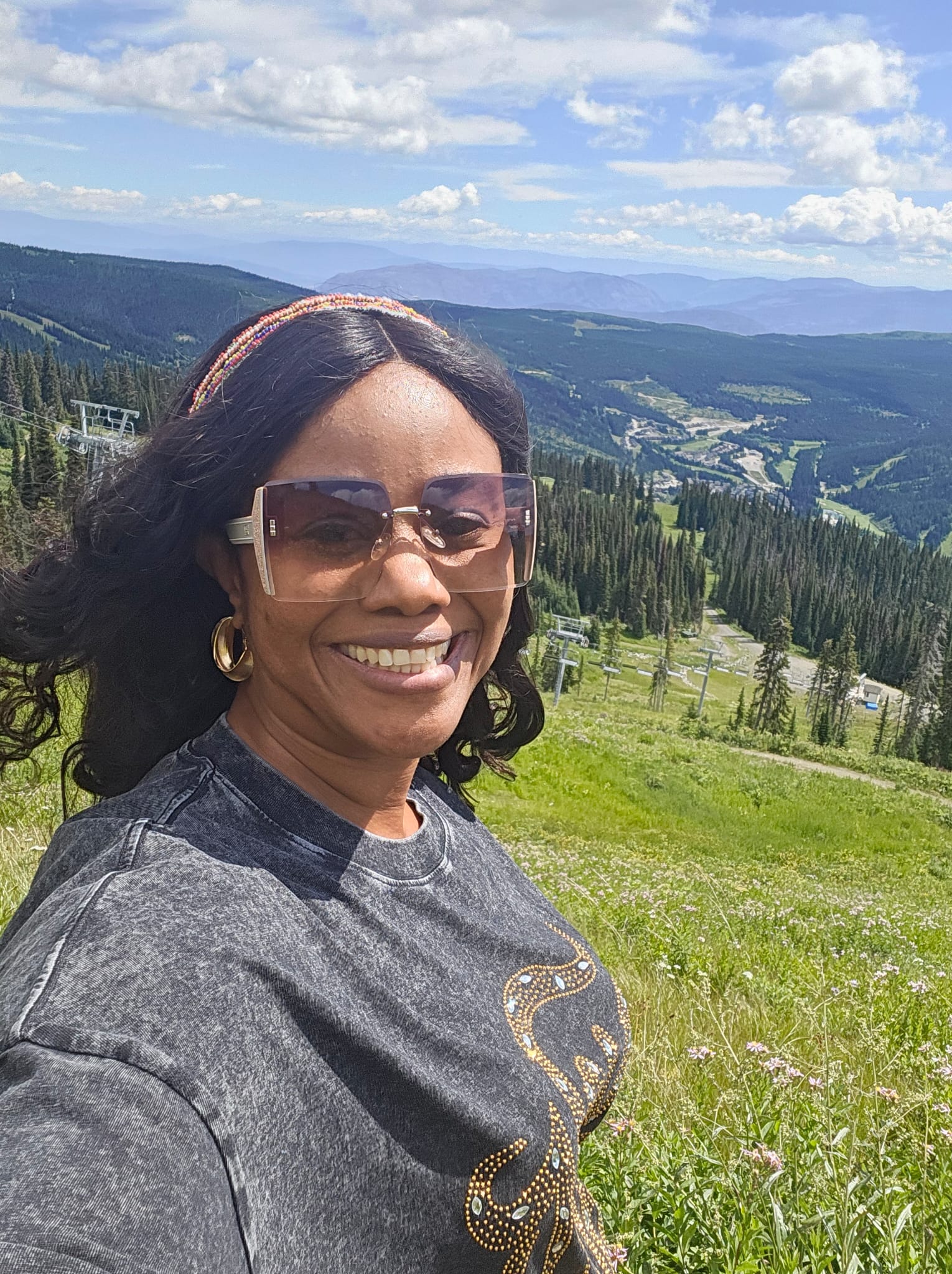- Indigenous Ways of Knowing: Resurgence of Land-Based Pedagogies and Practices
- Foundations of Human Rights and Social Justice-
- Social Justice and Culture
- Problem Solving in the Field
- Settler Colonialism: Decolonisation and Responsibility
- Contemporary Capitalism
- Genocide in the 20th Century
- Risk, Place and Social Justice
- Practicum at Kamloops Immigration Services.
All my classes were inspiring, but some really stood out and made me want to go to class early, even when winter was at its peak. My experience in Dr Jenna’s class was life-changing. First, the class was decolonised. Secwepemc was new to me, yet it felt right and homely. The way the class was taught and my ability to relate each learning to my own experiences made it easy for me to navigate the class.
The indigenous ways of knowing class was special, perhaps because of how Dr Jenna taught it, particularly the way she made us sit in a circle, making all the students feel at ease. The Secwepemc ways of knowing were an entirely new concept to me, and learning for me, and I was encouraged by the way Dr Jenna encouraged us to relate our learnings with our own experiences.
I learned new points of view and ways of understanding the world when Indigenous words were used in the materials, especially when they were focused on Stptekll (Secwépemc theory). The Stptekll task pushed me out of my comfort zone and helped me grow as a person by getting me to interact with Secwépemc’s thoughts in a useful and important way.
The hands-on learning experiences you set up were truly life-changing. Touring the Kamloops Indian Residential School was a depressing and eye-opening experience that made the effects of colonisation, both in the past and now, very clear, and I remember getting home that day to tell my daughter what I saw and how important it is that the Indigenous people get justice.
One assignment that really brought out my not-too-creative side was from the Settler Colonialism: Decolonisation and Responsibility class with Dr Robin and Dr Cooke. They came into the class with a wild out-of-the-box type of teaching. At first, I didn’t understand the assignment, which was identifying a place and defining a place. Many of my coursemates drew or brought something to the class, but I went into my archives to fish out some pictures I took when I worked in the creeks of the Niger Delta back home in Nigeria. To me, it was places that shaped my idea, thoughts, perspectives and outlook on the word “Justice” The mapping of the place assignment led me to do a poetry piece as my final project for the course. I wanted to tell the story of women in Nigeria from the pre-colonial period to the present democratic dispensation from a point of strength and resilience. I titled the poem The Echoes of the Niger.
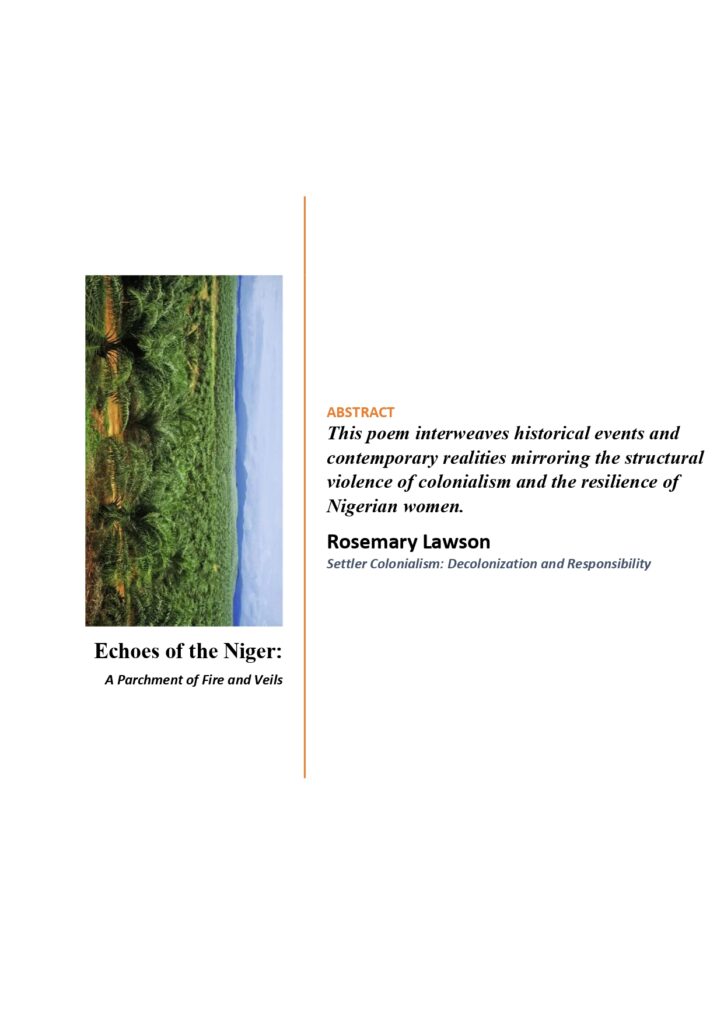
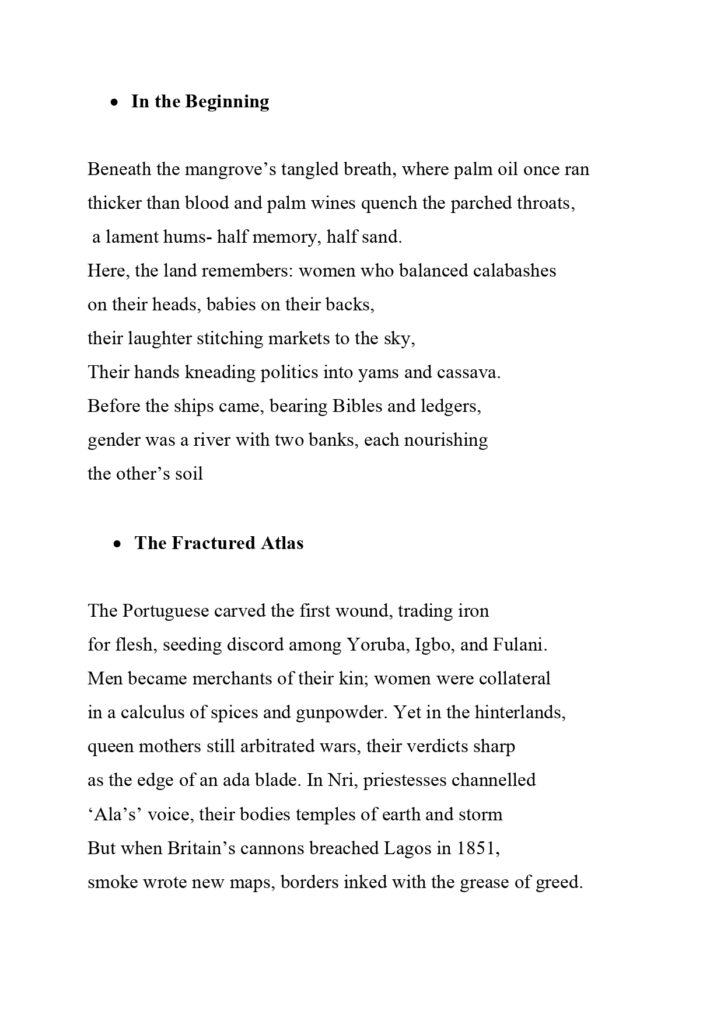
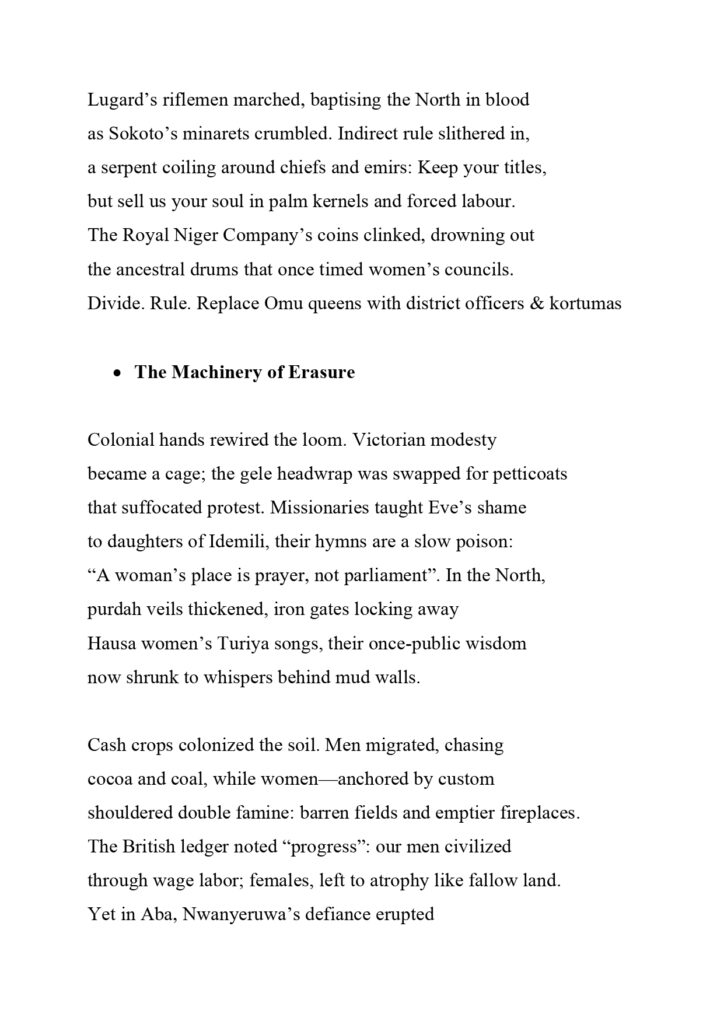
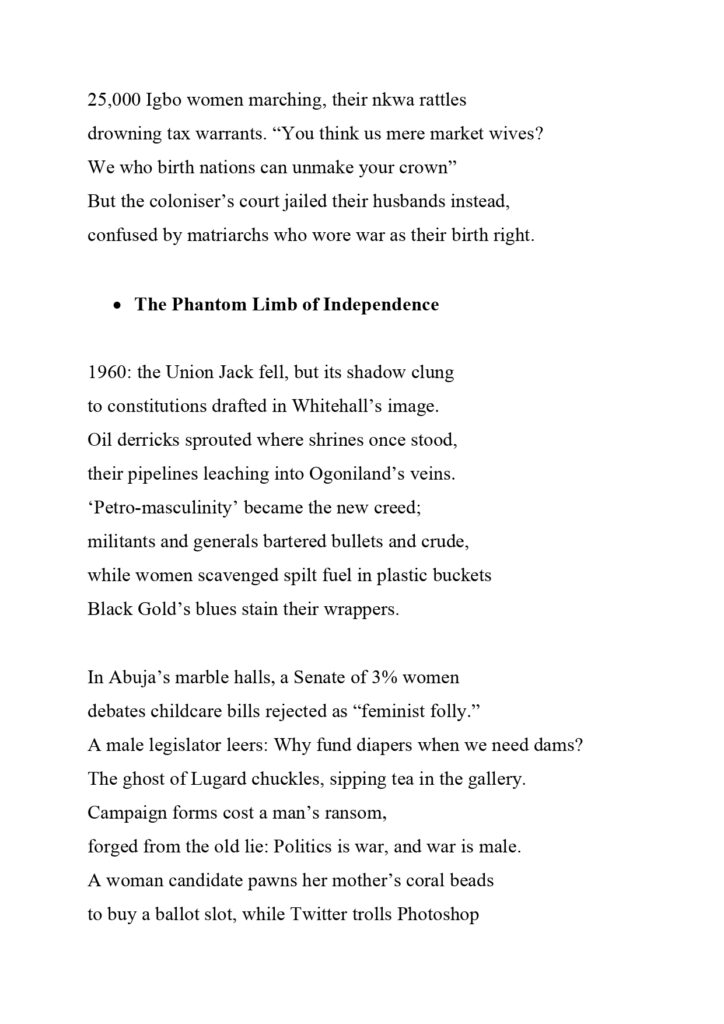
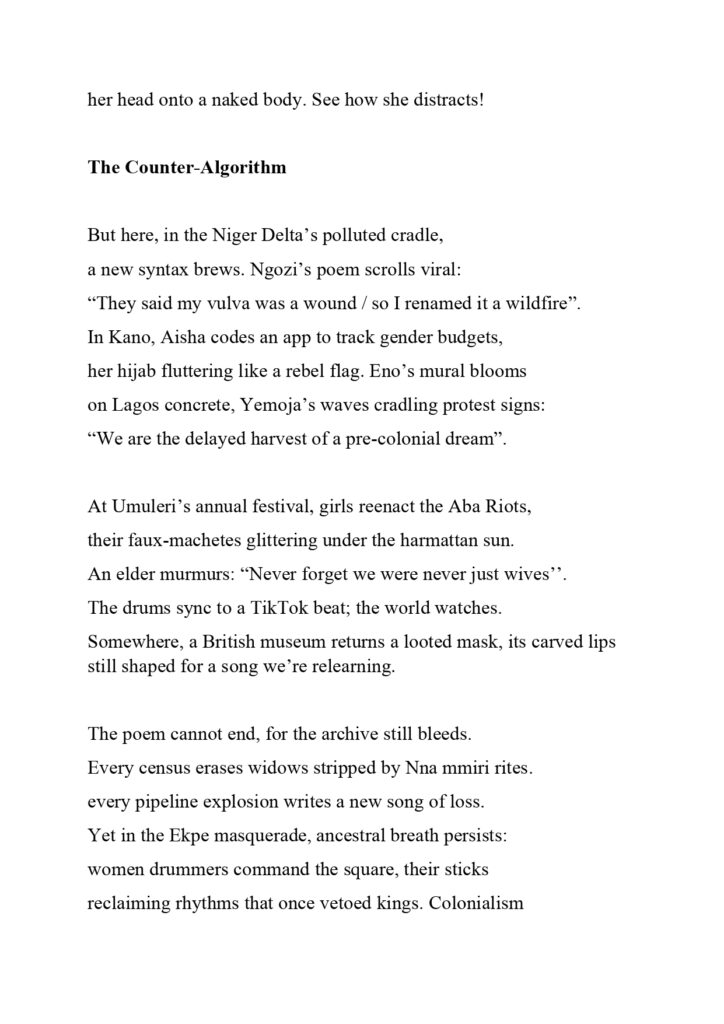
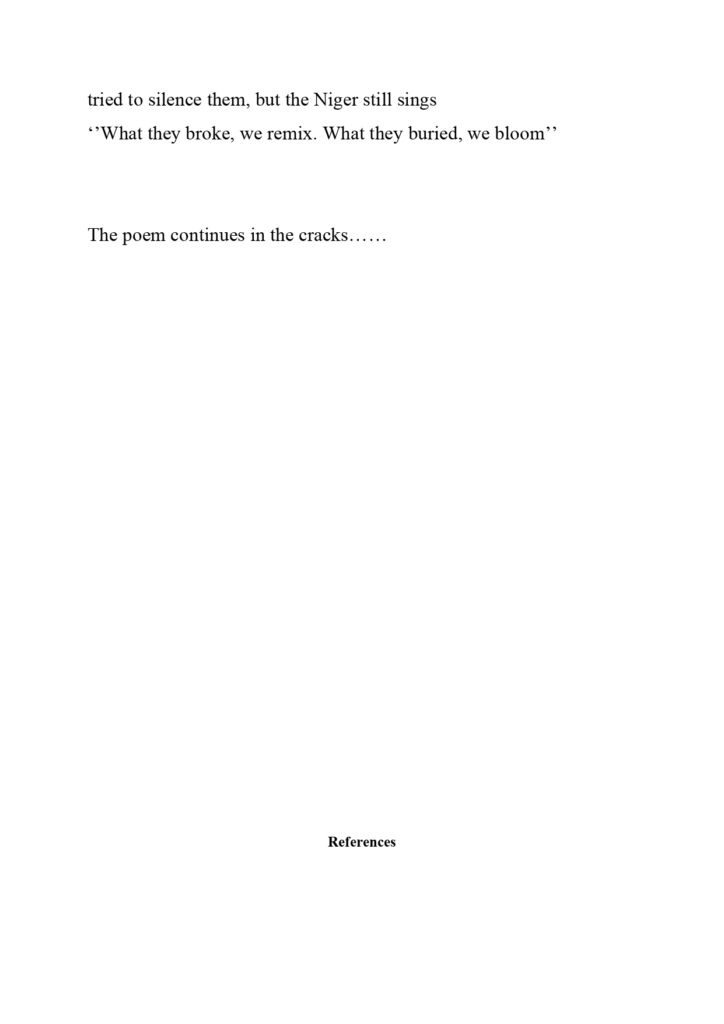
The one book that I read during this course was “Unsettling Canada: A National Wake-Up Call”, a book by Arthur Manuel and Chief Ronald Derrickson. Unsettling Canada link to e-book. Each chapter of the book resonates with me, but in chapter 11, the author describes Skwelkwek’welt, which is now Sun Peaks. He describes what it used to be and what the place has become. It was a place, according to the author, where there was a variety of plant foods such as roots, berries, plant stalks, etc and also a home to deer, moose, bear, beaver, lynx, cougar, and wolverine. It was a place where they practised their culture and a place of traditional learning to the younger generation, and suddenly that place was gone, and it became a place of environmental, economic and social injustice against the Secwepemc people. This chapter gave me a clear understanding of how to map a place and what makes a place significant. Also, the first chapter, The Lay of the Land, on page 2 talks about conflict with Chase and how it was rare but occasional flashes of open conflict. The line that struck me most is the racism the author witnessed and is still witnessing among later generations. As a black African, I can understand racism when I am a foreigner in the Land, but what I find hard to understand is why people whose land was stolen by the settlers are being treated like second-class citizens in their land.
This paragraph calls to my mind the stories I heard of our colonial past back home in Nigeria. There are areas of town called the GRA (Government Reserved Area). During the colonial period, it was meant mostly for colonial masters and their families. That part of town had all the essential amenities, but the part of town that was inhabited by the original owners of the land was always in a state of disrepair.
